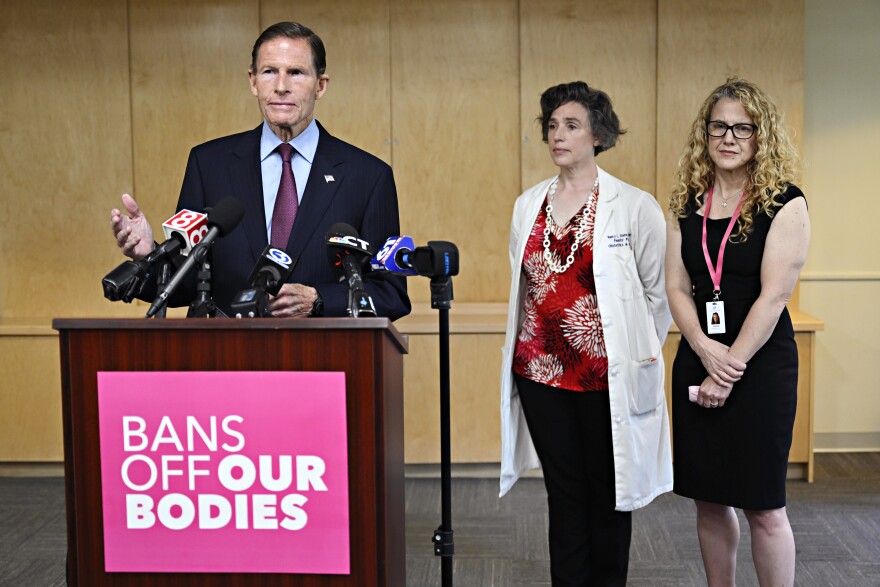Even before the U.S. Supreme Court’s decision last Friday to overturn abortion rights, Dr. Nancy Stanwood said patients from other states seeking abortion care were already traveling to Connecticut, where services remain legal.
“Most recently, we cared for a patient from Texas who was pregnant from a rape,” she said. “And the Texas ban does not make an exception for people who are pregnant from rape.”
Stanwood is an obstetrician-gynecologist and chief medical officer at Planned Parenthood of Southern New England.
“Our health center staff were phenomenal and amazing in meeting that patient and providing her both the excellent medical care and the emotional support she needed to navigate receiving abortion care, because of a rape, after traveling 2,000 miles,” she said.
Health care providers say instances like this will become more common as the country enters an era without Roe v. Wade, the 1973 landmark decision that affirmed a constitutional right to abortion. For Connecticut providers, it means expanding access and protections as quickly as possible.
A new state law set to take effect July 1 will expand the pool of health care providers who can perform certain kinds of first-trimester abortion care procedures.
“We know that the wait for abortion care in our centers is longer than we want already,” Stanwood said Tuesday at Planned Parenthood’s health center in New Haven. “Having the option now of our clinicians getting training to provide aspiration abortion will help us better meet the needs of the people of Connecticut, and be better prepared for the patients who will travel here to receive care.”
Local health providers anticipate rising numbers of patients from states with abortion bans seeking services in states like Connecticut, where abortion rights have been codified in state law since 1990.
Under Connecticut’s new expansion law, advanced practice nurses will be able to perform vacuum aspiration abortions, a type of in-office procedure that uses suction to end a pregnancy. Only physicians have been able to perform the procedure due to language that was used in early state statutes.
Advanced practice nurses in Connecticut are already able to prescribe the abortion pill, a common first-trimester option involving a combination of two medicines that end a pregnancy.
Stanwood said she will begin training the first cohort of health providers on aspiration abortion this summer. She said many eligible providers working at Planned Parenthood centers are electing to train in the procedure.
Providers working in reproductive and sexual health care across the country now face varying degrees of limitations – and risks – in practicing their specialty after the Supreme Court’s decision, especially in states with abortion bans.
U.S. Sen. Richard Blumenthal (D-Conn.) said his office has already received calls from health providers who say they intend to move to Connecticut to continue practicing.
“We’re going to have people coming here,” he said. “Unfortunately, though, their patients are still in the states that are going to be underserved.”

Amanda Skinner, president and CEO at Planned Parenthood of Southern New England, hopes the reversal of Roe will actually inspire more health providers to specialize in reproductive health care and provide abortion services going forward.
“What I am hoping is that this is a galvanizing moment,” she said, “and that people recognize the importance and value of being able to control your own sexual and reproductive health and life, the role that plays in defining your future and your freedom, in being able to have a family of your choosing.”
The July 1 Connecticut law will also provide some legal protections for out-of-state patients and in-state health providers who seek or provide abortion care within state lines from potential lawsuits brought by abortion opponents elsewhere.
Connecticut legislators who authored the new law have said they’re confident that these protections will act as a deterrent and stand up in court. However, some legal experts say until the law is actually tested, the fate of these protections is less certain.


